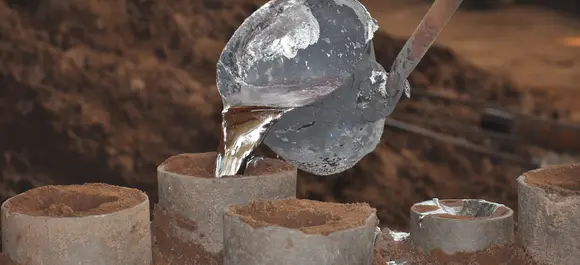Mobile:+86-311-808-126-83
Email:info@ydcastings.com
German
horizontal split casing
Understanding Horizontal Split Casing A Comprehensive Overview
Horizontal split casing refers to a type of design used predominantly in the manufacturing of centrifugal pumps and other rotating machinery. Its unique configuration offers significant advantages in maintenance, efficiency, and operation, making it a popular choice across various industries, including water treatment, oil and gas, and chemical processing.
What is Horizontal Split Casing?
A horizontal split casing pump is characterized by its casing which is split along a horizontal line. This design allows for easy access to the internal components of the pump, facilitating maintenance and reducing downtime. The two halves of the casing are bolted together, providing a robust structure that securely contains the pump's impeller and other vital parts.
This configuration contrasts with vertical split casing designs, where the pump is oriented vertically, impacting the ease of access for repairs and inspections. Horizontal split casing pumps are typically regarded as more user-friendly, particularly in industrial environments where maintenance schedules are critical.
Advantages of Horizontal Split Casing
1. Ease of Maintenance One of the standout features of horizontal split casing pumps is their maintenance accessibility. When the need arises to inspect or replace parts, operators can easily detach the casing, allowing for straightforward access to the impeller, seals, and bearings. This significantly reduces downtime, enabling quicker repairs without the need to remove the entire pump from its setup.
2. Durability and Strength The robust construction of horizontal split casing pumps makes them highly durable. The bolted design not only provides stability during operation but also contains the operational pressures with minimal risk of leaks or failures. This reliability is crucial in high-stakes environments where equipment failure can lead to significant downtime and financial losses.
horizontal split casing

3. Versatility These pumps can handle a wide array of applications, including high-pressure environments. They are available in various sizes and configurations to suit different fluid handling requirements. Whether it’s transporting water, corrosive chemicals, or slurries, horizontal split casing pumps can be tailored to meet specific operational challenges.
4. Efficiency Horizontal split casing pumps often demonstrate higher hydraulic efficiencies compared to their vertical counterparts. This is largely due to their design, which minimizes hydraulic losses, ensuring that more energy is converted into pump performance rather than wasted in turbulence or friction.
5. Reduced Risk of Cavitation The design of horizontal split casing pumps helps mitigate the risk of cavitation, a phenomenon that can lead to severe damage. The optimal positioning of the impeller in relation to the suction flow path aids in creating better flow characteristics, leading to smoother operation and extending the equipment’s lifespan.
Applications of Horizontal Split Casing
Horizontal split casing pumps can be found in numerous applications across various sectors. In the water industry, they play a vital role in water supply systems and irrigation. In the oil and gas sector, they are utilized for transporting crude oil and refined products. Chemical manufacturing frequently employs these pumps for transferring corrosive substances.
In addition, horizontal split casing pumps are essential in HVAC systems for circulating water in heating and cooling systems. Their ability to handle large volumes of fluid efficiently makes them ideal for these applications, where reliability and performance are paramount.
Conclusion
In summary, horizontal split casing pumps offer numerous advantages that make them a preferred choice in many industrial applications. Their ease of maintenance, durability, versatility, and efficiency contribute positively to operational effectiveness. As industries continue pushing the boundaries of efficiency and sustainability, the role of horizontal split casing technology will likely remain integral in meeting these challenges, proving itself as a resilient, reliable, and efficient solution for fluid handling needs.











